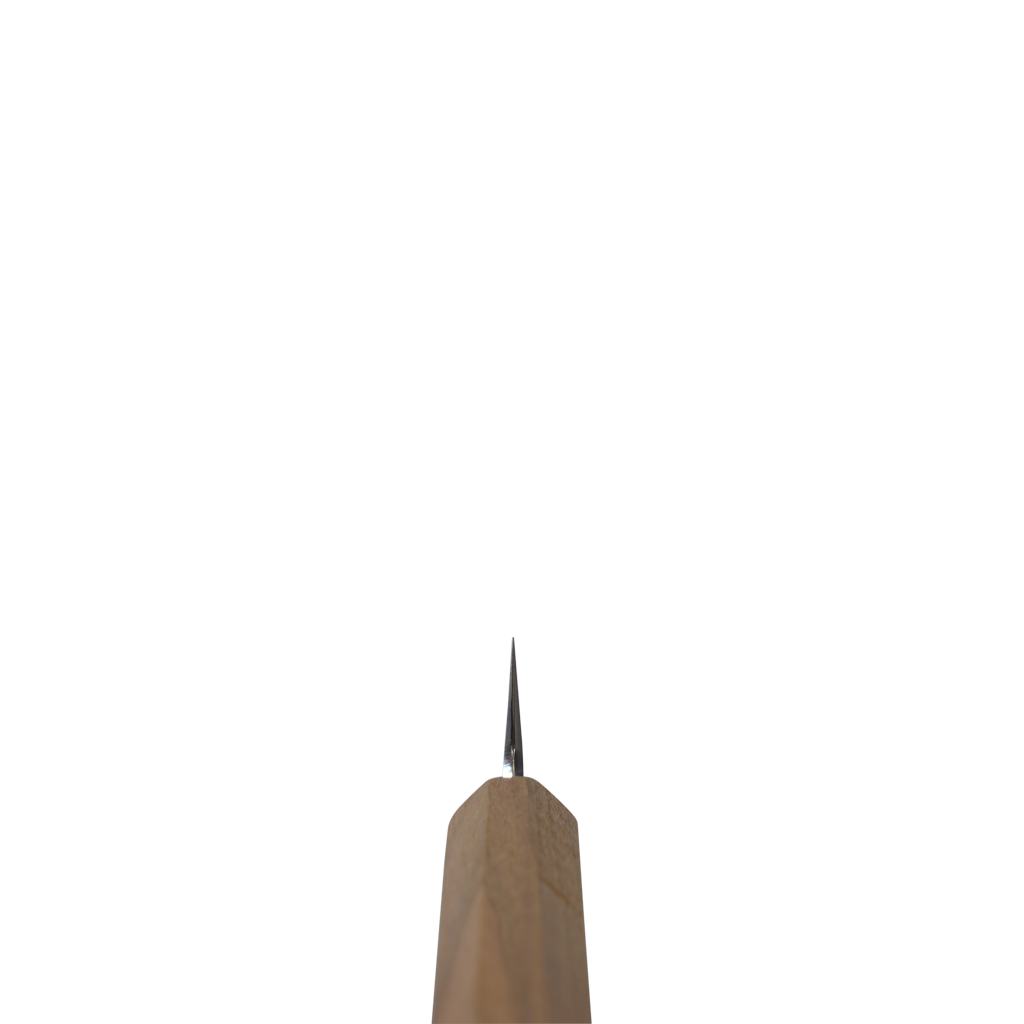HADO (GINSAN) 90mm Paring
HADO (GINSAN) 90mm Paring
A Paring knife is primarily used for intricate peeling, slicing, mincing and dicing of fruits and vegetables.
The blade of this knife is hand forged by blacksmiths and the handles are made of wood. As a result, there will be minor variations in blade length, appearance of the blade finish, wood grain and colour.
The product images should be treated as a close approximation of what will be received.
Share
{Maker/Brand}Maker
Fukui Co
{Maker/Brand}Brand
Hado
{Maker/Brand}Origin
Osaka Prefecture, Japan
{Maker/Brand}Stock Keeping Unit
1000067
{Specifications}Material(s)
Ginsanko Silver #3 + Soft Stainless Steel-clad (blade is full stainless)
A note on cladded blades: Cladding sandwiches the hardened steel core (i.e. the cutting edge), giving the blade durability – in particular resistant too breakage, and is more easily abraded for the purposes of profiling and sharpening. Cladding is referred to as 'Soft', which simply means it is less hard that the core steel.
{Specifications}Handle
Cherry
{Information}Care Instructions
Wash the knife by hand using a gentle dishwashing liquid. Always dry immediately after washing with a soft cloth. Do not let the knife drip dry. Also do not wash your knife in a dishwasher, as it encourages the blade to rust and the wooden handle to dry out and crack over time
The knife is made of Japanese hardened 'stainless' steel. Stainless refers to a steel that is resistant to staining. It is not rust proof. If rust does appear on the blade use a rust remover to remove it
The wooden handles also require care. Depending on use, we recommend oiling the handle every 3-12 months (depending on use) with boiled linseed or tung oil.
Store your knife in a saya (our recommendation), the original box, a knife block or a mounted knife magnet bar/strip.
The blade is made from harden steel. Harden steel produces a finer edge, and has excellent edge retention. However, a harden steel edge can easily be damaged if not used in the manner outlined in the Description. Do not cut hard ingredients (e.g. frozen food, bones, hard rind on parmesan cheese, woody rosemary stalks, hard pumpkins, coconuts etc) or non-ingredients. Do not drop your knife. Only cut ingredients on a wooden chopping board.
The knife should only be sharpened using a whetstone. We highly recommend that the edge be stropped, with a leather strop, after sharpening. Do not use pull through sharpeners, regular or diamond honing steels or mechanical sharpening machines.
Related Products
Related Product
Related Product















